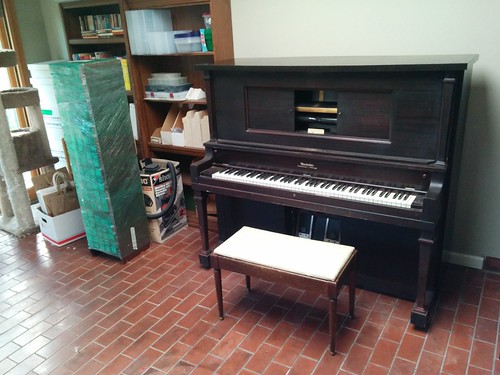Harbor Freight is making a swing-arm magnifying lamp with a circular fluorescent bulb around it. I’ve been looking for one of these for ages, and had only found vintage ones or really expensive new ones. The vintage ones were all a little janky and heavy and sometimes expensive as well. It was not a great combination.
Read the rest of this entry »Harbor Freight Fluorescent Magnifying Lamp
January 10th, 2023Compiling Libraries for Strawberry Perl
June 25th, 2022I’ve recently been working on a project that will probably have to run on Windows in the end, which means I needed to use a Windows Perl.
ActiveState has recently changed their licensing and model so it’s very much driven into the cloud, and that’s not what I wanted at all.
Strawberry Perl to the rescue! It’s a nice package which includes a compiler so you can build modules and have everything you need to run Perl, all stuffed into c:\Strawberry. It’s a pretty well put together system. At least, until you need to compile a third party library for it. Then it gets harder.
Read the rest of this entry »City of Heroes $ variables
July 14th, 2019In City of Heroes you can use a few variables in messages. They start with $ and will be replaced with the relevant text for your character. I never found a complete list. Here it is:
Home Automation
February 7th, 2019I’ve been enjoying owning my home because it lets me make changes to it without a landlord getting involved. One of the changes I’ve been enjoying is working on a home automation system, building a “smart home” as they’re often called lately. However, I Know Too Much about how the Internet and “the cloud” works, so I have some very specific requirements on how I will allow a smart home system to operate in my home.
Read the rest of this entry »Modello Player Piano – Arrived!
April 11th, 2017Look what made it to my house!
My Great-Grandmother bought this piano. If I understand correctly, she bought it in the late 1930’s or early 1940’s. It’s a Modello brand piano, with a pneumatic player that plays the paper rolls. It was at my Grandparents’ house until the early 1980’s, when it moved to Mom and Dad’s, so my sister and I could have piano lessons. In 2017 it moved to my house, so Mom and Dad could have the end of their rec room back. My sister, who got way more out of those lessons than I did, lives in a tiny apartment she rents, and has no place to put a piano so it came here. When she gets settled into a more permanent place, she and I will talk about where it goes. Read the rest of this entry »
PBP: 106 Automating Sorts
July 2nd, 2015The PBP suggests using a module called Sort::Maker to build powerful sort functions without getting hung up in the details and possibly messing up the implementation. Read the rest of this entry »
PBP: 105 Avoid string eval
June 29th, 2015The Best Practices suggest avoiding string eval. Read the rest of this entry »
PBP: 104 Variable-Width Data
June 25th, 2015The Best Practices suggest using CPAN modules for more complex data parsing, instead of trying to roll your own. Read the rest of this entry »
PBP: 103 Separated Data
June 22nd, 2015The Book suggests using split to take apart separated data with simple separators. Read the rest of this entry »
PBP 102: Fixed-width Data
June 18th, 2015The PBP suggests we use unpack to take apart fixed-width data. Read the rest of this entry »
